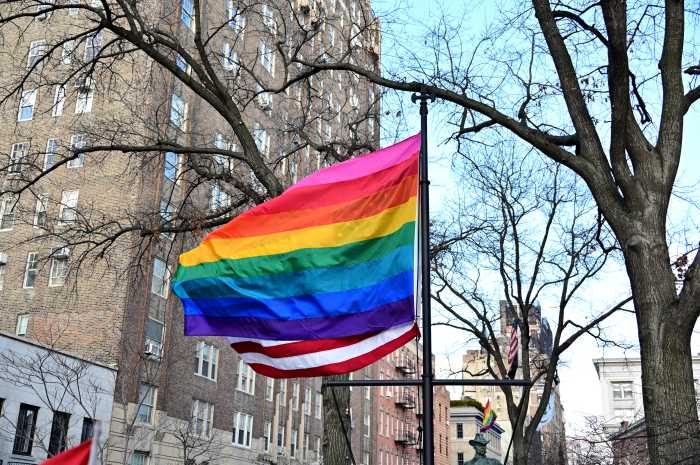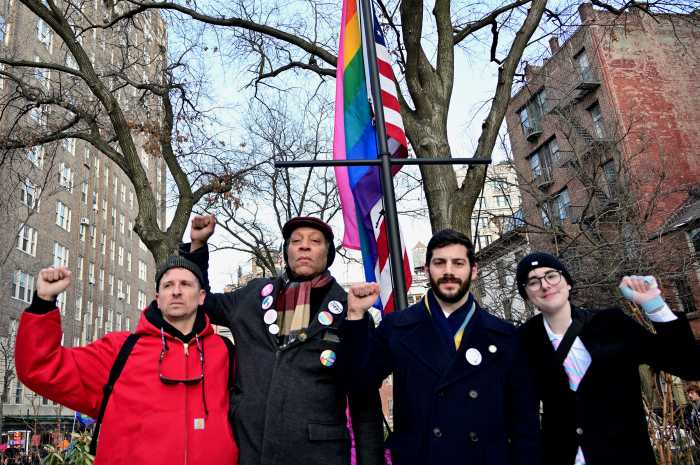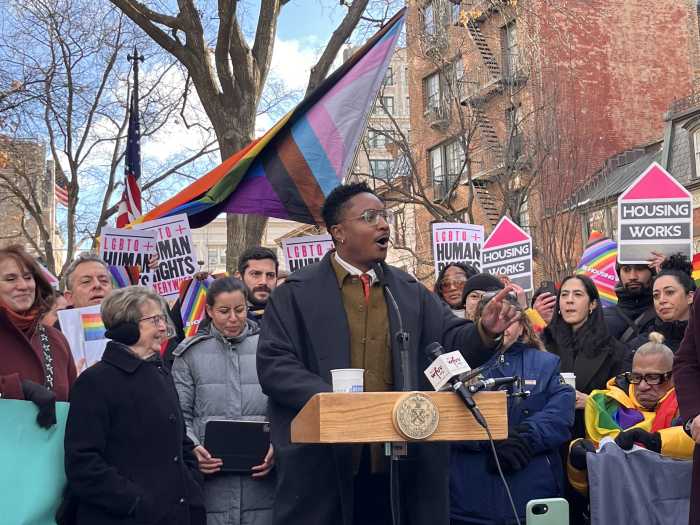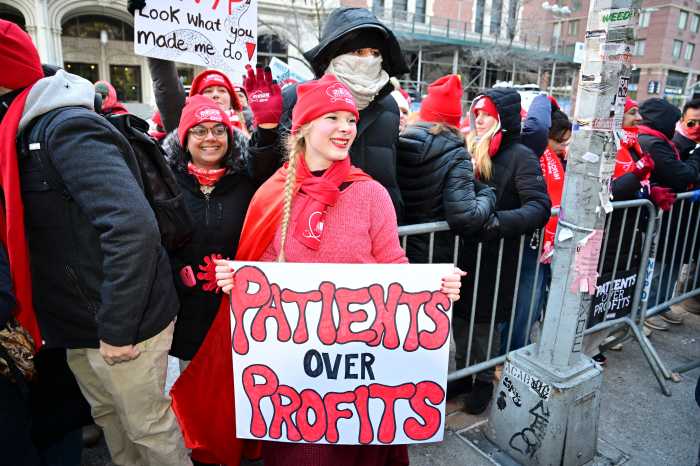In the end, it’s all about love. Each of us has to define love in our own way, and within our community it means many different things.
Two gay men raising a young son. An older lesbian couple who have seen the world change completely in the decades of their union, and now want to have their marriage legalized. A young woman who achieves sexual fulfillment with both men and women. A transsexual woman who has completed the difficult journey from a troubled boyhood and today lives to be accepted and validated for who she is. A middle-aged man who finds comfort in sexual and spiritual communion with different men on different nights.
Thirty-five years ago, when the queer community fought back with a ferocity that shocked this city and awakened the nation’s largely quiet and hidden gay, lesbian, and transgender population, America was in the midst of what turned out to be a relatively brief countercultural moment in which the word love was much in the air. Two years before the June 28, 1969 riots outside the Stonewall Inn, “Hair” had taken Broadway by storm while San Francisco’s Haight-Ashubry celebrated its legendary Summer of Love. The sexual revolution was well into its first decade, and the phrase “free love” had been transformed from an obscure, and vaguely bohemian reference into a hip oath of unbounded personal potential.
Many people would say our world has grown up since then. As a political movement, we are concerned with the codification of rights and benefits—and even obligations! Our community is a consumer marketing niche, which many, though not all, advertisers are eager to tap, even if a good number have misfired along the way. Gay and lesbian life is the subject of multi-million dollar television and Hollywood gambles. We have glossy magazines that posit a community undoubtedly far wealthier than we really are, and as if to prove those publishers right, many of us cop the attitude that goes along with that A-list imagery. We have children. The youngest among us are forming alliances in high schools. Some critics harking back to the earlier era of liberation—or free love, if you will—accuse of us having become boring.
As a community—and here at Gay City News, as a publication—we spend a lot of time considering, and worrying, and arguing about whether these changes are for the better, or perhaps which of these changes are for the better.
But, for just this one weekend, let’s think about the love.
Our struggle for freedom, our civil rights movement, and a core personal mission in our lives are all bound up in our insistence that we be free to express ourselves sexually and emotionally in the way that we each choose—that we have the right to love the person we wish to love.
Simple, nurturing, and profound as love is, it is necessarily threatening as well. For centuries, governments and men have tried to systematize love and its relationships in ways that will serve the interests of the state, which those who have governed us defined as the common good in order to justify their incursions on our personal freedom. The history of the last century has been in important measure about the drive to throw off the shackles of that control, but something like gay love, which undermines the fundamental male-female binary of our culture, continues to provoke fear, rage, and backlash.
We have made enormous strides. Those who hate us or reject our most basic claims are denying the power of love. Coming out is, above all else, testimony to the fact that we love ourselves and that we believe that we can be loved by others. It is no accident that as more of us come out, our community is viewed with greater favor by society at large—we are loved because we are able to articulate that we can be loved.
If we give this nation the chance to share in this love, our cause will prevail. At a moment of unprecedented opportunity and risk, that is the message of Pride this year.
WRITE US!
Email letters to Editor@gaycitynews.com
Or fax to 646.452.2501
Or mail to 487 Greenwich St., Suite 6a, New York City 10013
Please include a phone number for confirmation purposes only.
We reserve the right to edit all letters to meet space constraints.



































